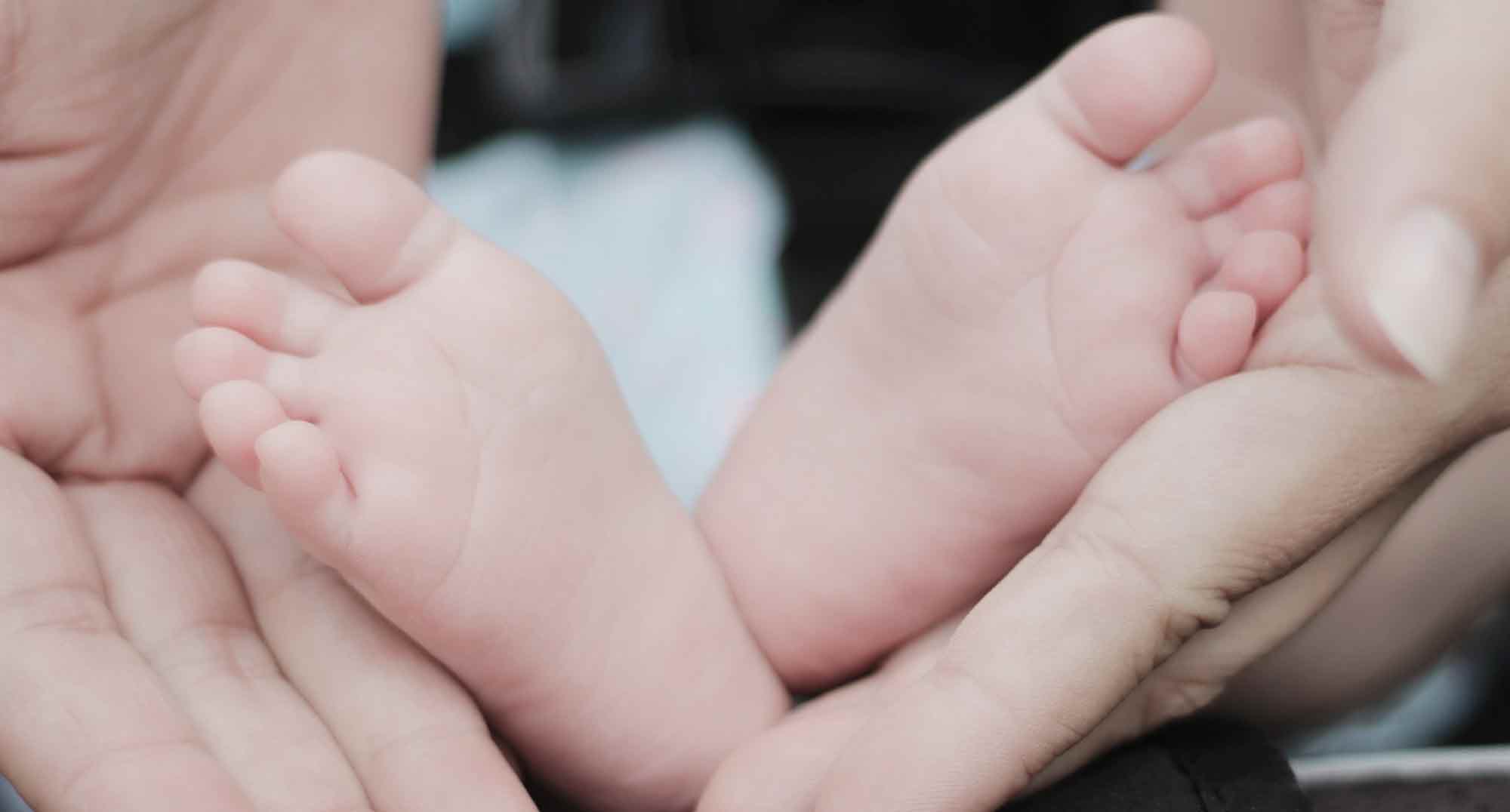LEAH FARISH|GUEST
On Sanctity of Human Life Sunday, many churches call us to contemplate the issue of unwanted pregnancy. As Christians, we must be conscious of the importance of tiny creations who are weak, dependent, still developing, yet loved by God and full of potential. But more than just babies in the womb, I am also describing their mothers and fathers, social workers, judges, politicians, abortionists, and pastors—all mere humans who may grapple with what some may view as “problem” pregnancies.
It’s doubtful that sin is the only problem with our ineffectiveness; our limitations also hamper us. It may seem there aren’t enough hours in the day to minister to everyone. We can lack imagination to believe that someone in our midst may be agonizing over an unplanned pregnancy. Or we may not know how to empathize in that situation. Perhaps some are immobilized by the fact that they themselves chose abortion in the past, or secretly cling to that option for the future. Maybe we aren’t equipped with a biblical basis to engage with someone on the issue.
It is with our own limitations that we all encounter the anguish of abortion, and now that the subject is legally in the hands of the 50 states, it is helpful to acknowledge that the decision-makers, doctors, and families involved are also frail and incomplete images of God. Covenant College professor Kelly Kapic makes this point in You’re Only Human—my favorite Christian book in 2022. He taught me that limitations are something different from sin and that if we try to handle problems without allowing for limitation, the solutions we find won’t be durable.
With the empowering of the Holy Spirit, the church can do better for women who are deciding about abortion. God’s Word is the sure foundation for addressing all problems. Let’s look at some statistics on the needs, and a passage from Psalm 103 addressing each one:
Abortion in our midst
In a 2015 survey of women who had aborted[1], 36% were attending a Christian church once a month or more at the time of their first abortion. This tells us that churches could do better at preventing an unwanted pregnancy among their women, and of preparing women to choose life if they do confront it. What limitations do our well-intentioned pastors and women leaders have that keep them from addressing these basic issues?
Psalm 103 says,
Bless the Lord, O my soul,
and all that is within me,
bless His holy name!
Bless the Lord, O my soul,
and forget not all his benefits,
who forgives all your iniquity,
who heals all your diseases,
who redeems your life from the pit,
who crowns you with steadfast love and mercy,
who satisfies you with good
so that your youth is renewed like the eagle’s.
When the church prays and proclaims truths like these, we tap into His infinite capacity to heal, redeem, and satisfy us. When we are grounded in praise of this awesome God, we challenge women to a vision of all that is within their bodies being able to bring praise to God. We help teens to connect with Him, avoiding destructive relationships. We move away from hypocritical sexual disobedience in our own hearts. We manifest humility and forgiveness for those among us who fall. We exhibit faith that there is infinite potential in babies, and in mothers who can’t see a way forward, redeeming lives that are “in the pit.” We can uphold them as our energy is renewed by His Spirit.
Unhelpful responses
Regarding discussion about women who end their pregnancies–64% of women who aborted agreed that church members are more likely to gossip about a woman considering abortion than help her understand options! 54% said churches oversimplify the decisions about pregnancy options. Good teaching, creativity, and visibility of resources could convey to troubled couples that God and His people are there to help.
In the words of Psalm 103:6ff:
The Lord works righteousness
and justice for all who are oppressed.
He made known his ways to Moses,
his acts to the people of Israel.
The Lord is merciful and gracious,
slow to anger and abounding in steadfast love.
Anyone who has really studied the ways of God “to Moses, His acts to the people of Israel” will not oversimplify! God made a way out for the infant Moses when other Israelite babies were being killed. He found him “in the back side of the desert” after he had murdered a man, thinking no one had seen him do it. He disciplined, but led, his erratic chosen people, providing manna and miraculous water in the most unexpected places. He works righteousness and justice, vindicates the oppressed, and yet is merciful and gracious—what a combination! This is the surprising and sovereign God we have. So we in turn extend mercy to people who are in terrible circumstances. We are discreet about these intimate stories, squelching gossip. We do not water down God’s holy standards of righteousness and justice, but we offer gospel grace to everyone.
Silence
Only about 10% or fewer of at-least-monthly church attenders discussed their decision about abortion with someone at a local church, and 7% of Christians did not discuss it with anyone. Of self-identified evangelical Christians, 51% said the local church had no influence on their decision. Do congregations, elders, or deacons have the bandwidth to talk with women in crisis? If not, should our priorities shift in 2023 to make a space for such people? Can we create an atmosphere where people can open up about what they are really dealing with? What is going on at church that seems so irrelevant to women who abort? And what about our lack of impact with men—the men who father children and then lose a child to abortion? Few men ever speak of this tragedy.
According to Psalm 103: 13-18,
As a father shows compassion to his children,
so the Lord shows compassion to those who fear him.
For he knows our frame,
he remembers that we are dust.
As for man, his days are like grass;
he flourishes like a flower of the field;
for the wind passes over it, and it is gone,
and its place knows it no more.
But the steadfast love of the Lord is from everlasting to everlasting on those who fear him,
and his righteousness to children’s children,
to those who keep his covenant
and remember to do his commandments.
Church people are comfortable remembering that they are but dust, viewing their own sins and limitations with mercy. But we need to extend that same mercy to others. Life is too short to harbor judgement or superhuman expectations toward men or women who have gone down the wrong path. On the other hand, the shortness of our “days like grass” can challenge a woman to see the months of carrying an unwanted child as very short indeed, and this psalm we preach calls parents to show compassion to their children, not destroy them.
Churches aren’t entirely missing the mark; 71% of evangelicals and 38% of non-evangelicals who had aborted, agreed that churches and pastors are safe to talk with about abortion, and 57% under age 34 said that churches will provide help to those who choose to keep their child. Allowing for the fact that we do need to keep the helping process confidential, this is encouraging data.
Even the children of God are limited beings. But looking to Scripture and the powerful love of Christ, under our infinite Father, we can be redemptive friends to our fellow tiny creatures.
[1] LifeWay Research: “Study of Women who have had an Abortion and Their Views on Church” 2015. https://6992fcbe-7b09-4360-9322-392d758e07b8.filesusr.com/ugd/76dd10_7f4c164496eb47278386b95679fd27e1.pdf
Photo by Bonnie Kittle on Unsplash

Leah Farish
Leah Farish is host of the Conversation Balloons podcast. She contributed the chapter on the Sixth Commandment (Do not kill), to the recently released The Decalogue Project: Disciples from Six Continents Engage God’s Ten Commandments, a PDF of which is available here.

